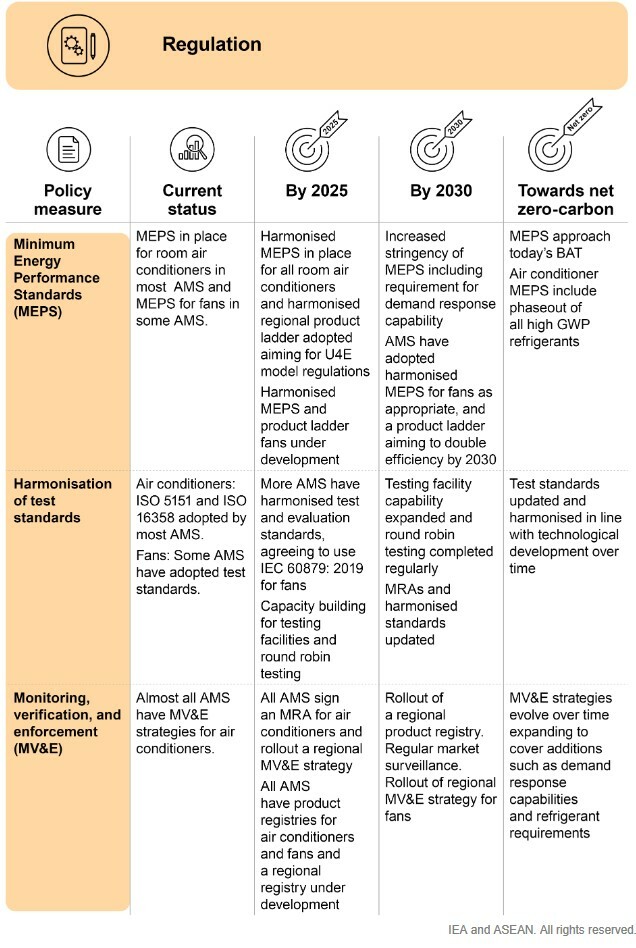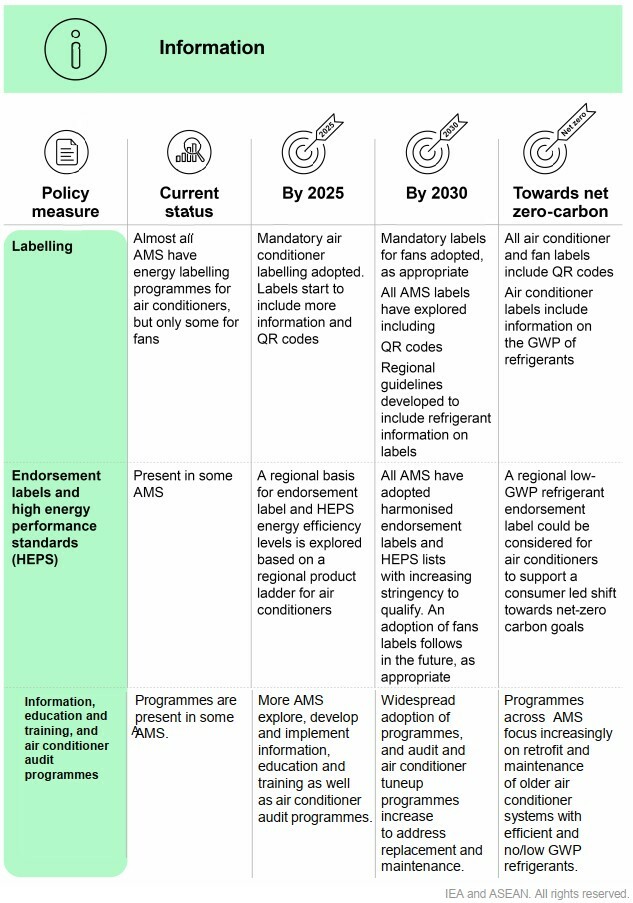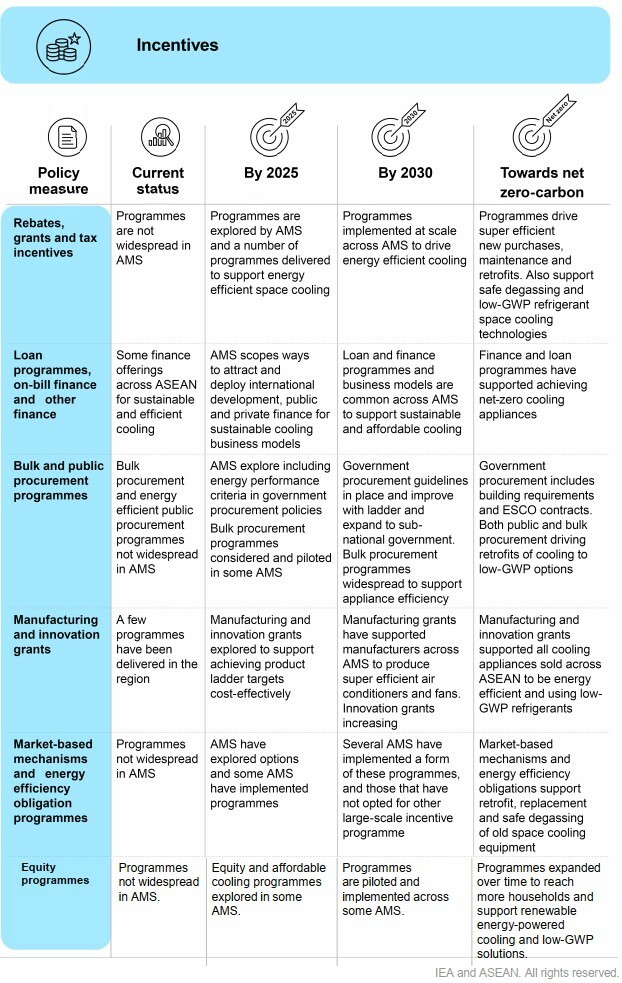Measures towards energy-efficient air conditioning in Southeast Asian countries
The IEA projects that electricity demand from air conditioning could reach 300 TWh by 2040 in the ASEAN region (Association of Southeast Asian Nations). Energy efficiency measures are therefore required.
In April 2022, the IEA released a report on air conditioning in collaboration with the Association of Southeast Asian Nations (ASEAN) Member States, which includes ten Southeast Asian states: Brunei, Cambodia, Indonesia, Laos, Malaysia, Myanmar, the Philippines, Singapore, Thailand and Vietnam. The report highlights that electricity use for air conditioning in buildings in ASEAN has grown about sevenfold since 1990 to around 80 TWh in 2020. In comparison, electricity consumption from air conditioning in 2020 was around 100 TWh for the EU and about 430 TWh for China.
There are large differences in air conditioner ownership across the region, with more than four-fifths of households in Brunei Darussalam, Malaysia and Singapore owning an air conditioner in 2017, compared to fewer than 10% in Cambodia, Indonesia, Lao PDR, Myanmar, the Philippines, and Viet Nam. Nevertheless, with continued economic development and population growth across the region, the IEA projects that air conditioner stock across ASEAN will grow from nearly 50 million units in 2020 up to 300 million units in 2040. Consequently, electricity demand from air conditioning in the region could reach 300 TWh in 2040.
The report suggests a range of policy measures in order to achieve sustainable and efficient air conditioning. The potential actions cover three categories – regulation, information and incentives – and 12 types of policy measures. Objectives towards net zero could include for instance:
- Regulation. Harmonised Minimum energy performance standards (MEPS) that include phasing out all high GWP refrigerants.
- Information. Developing training programmes that focus on retrofit and maintenance of older air conditioner systems with efficient and low -GWP refrigerants.
- Incentives. Financial incentives are currently not widespread in ASEAN member states. A net zero objective would be the implementation of programmes that support the purchase, maintenance and retrofit of energy efficient air conditioning systems.
The extensive list of potential policy tools is presented in the tables below.



Source
IEA (2022), Roadmap towards Sustainable and Energy-Efficient Space Cooling in the Association of Southeast Asian Nations, IEA, Paris https://www.iea.org/reports/roadmap-towards-sustainable-and-energy-efficient-space-cooling-in-the-association-of-southeast-asian-nations
